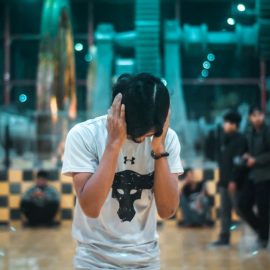

This article is an excerpt from the Shortform book guide to "Battlegrounds" by H. R. McMaster. Shortform has the world's best summaries and analyses of books you should be reading.
Like this article? Sign up for a free trial here.
Is diversity a strength or a weakness? How can it be leveraged to make America stronger against its adversaries?
General H. R. McMaster argues that the U.S. can face its global challenges with long-term goals. One strategy he recommends is to turn American diversity into strength and reaffirm education as a fundamental bulwark of democracy.
Continue reading to understand McMaster’s argument that diversity is strength.
America’s Diversity Is Its Strength
Autocratic governments often portray cultural, ethnic, and ideological diversity as a weakness of democratic societies. But, McMaster believes that diversity is strength. While America’s collage of differing ideas, cultures, and institutions can make it slow to react as a unified whole, he argues that it also represents the country’s greatest potential. Making use of that potential may require removing the bureaucratic barriers to cooperation among government, academia, and industry while renewing the country’s focus on education as a means to empower all levels of society.
Authoritarian nations such as China are able to mobilize government, military, and industrial strategies as one because under such a system the boundaries between them are blurred. However, such systems also shackle the creative freedom that fuels innovation. The U.S. would be ill-served to give up its creative edge, but McMaster suggests that America could better utilize its strengths if there were easier ways to share ideas between the public and private sectors. At present, there is a wall of red tape between government agencies, tech corporations, military branches, and academic research. If the U.S. wants to stay on the leading edge of technological development, then it may be past time for that wall to come down.
(Shortform note: One area in which the U.S. is technologically competing with China is in the development of microchips and the semiconductors on which they are based. Taiwan has led the world in semiconductor production for years, but its tensions with China create a vulnerability in the world’s supply chain for computer circuitry. The Biden administration has enacted measures to restrict the export of microchip technology to China and funnel billions of dollars into semiconductor research. However, there are concerns that the U.S.’s high labor costs will keep it from being competitive unless American companies develop ways to cost-effectively automate microchip production.)
In addition to its intellectual diversity, America’s cultural diversity can be used to set an example to others that internal divisions of race, creed, and culture don’t necessarily lead to violence and oppression. McMaster says that America’s diplomatic missions abroad, especially in places like the Middle East, should promote recognition of equal rights for all groups, not just the ruling ethnic or religious majority. To drive the point home, the U.S. should welcome more immigrants from abroad, especially those who’ve faced oppression in their home countries.
(Shortform note: In order to serve as a model for cultural tolerance, the U.S. may have a lot of work to do at home to overcome its own history of racial violence. By various metrics and rankings, such as the Social Progress Index and the World Values Survey, the Netherlands, Canada, and the Nordic countries consistently score higher than the U.S. in terms of racial and cultural equality. In Caste, journalist Isabel Wilkerson says the U.S.’s internal divisions break down even further along lines of religion, wealth, and labor, and have contributed greatly to the U.S.’s current political polarization.)
However, for such a strategy to work, the American people have to be on board. To achieve this, McMaster insists that education should once again be made a national priority. In addition to the sciences and humanities, though, emphasis must be given again to teaching civics in schools and universities. American people, young and old, need to relearn that democracy works, how to engage in civil discussion, and why the U.S. needs to stay engaged with allies and competitors elsewhere in the world. Students shouldn’t be taught a sugar-coated version of American history, but they should be made aware of its virtues so that they can understand American democracy as a continuing experiment on the world stage of which they are all a part.
(Shortform note: McMaster’s views on U.S. civics education are backed up by research. A 2016 study revealed that less than a fifth of U.S. states require high school social studies courses, and as a result, less than a quarter of U.S. adults can even name the three branches of government. However, more voices are calling out for an increased emphasis on civics education and public involvement as essential to maintaining American democracy—in the wake of the January 6, 2021 attack on the U.S. capitol, 34 state legislatures introduced bills to bolster civics teaching at all levels of public education, many of which passed with strong bipartisan support.)

———End of Preview———
Like what you just read? Read the rest of the world's best book summary and analysis of H. R. McMaster's "Battlegrounds" at Shortform.
Here's what you'll find in our full Battlegrounds summary:
- Why the U.S. has lost influence on the global stage
- The bad assumptions that cloud U.S. foreign policy
- Strategies the U.S. should adopt in order to help defend the free world






